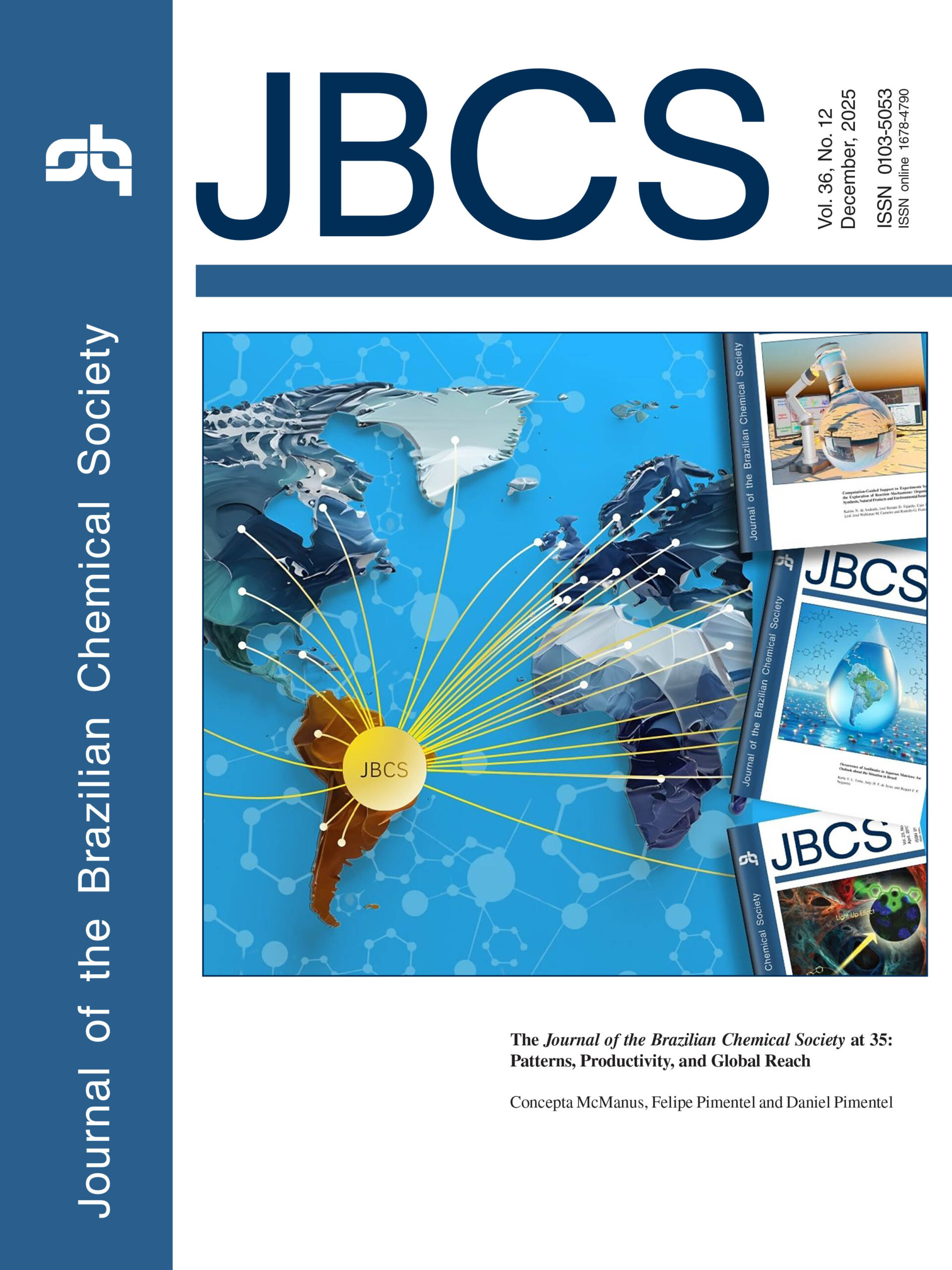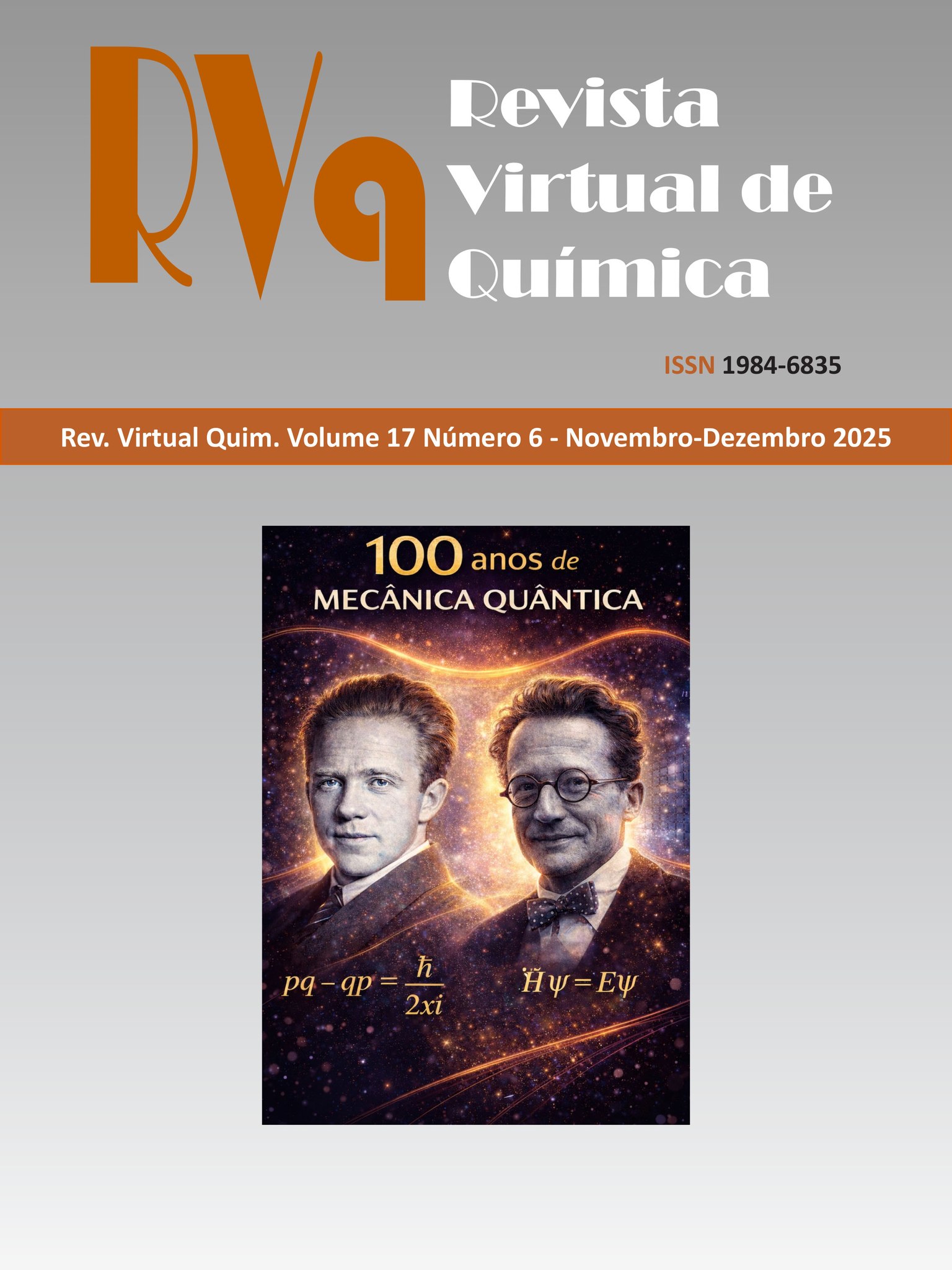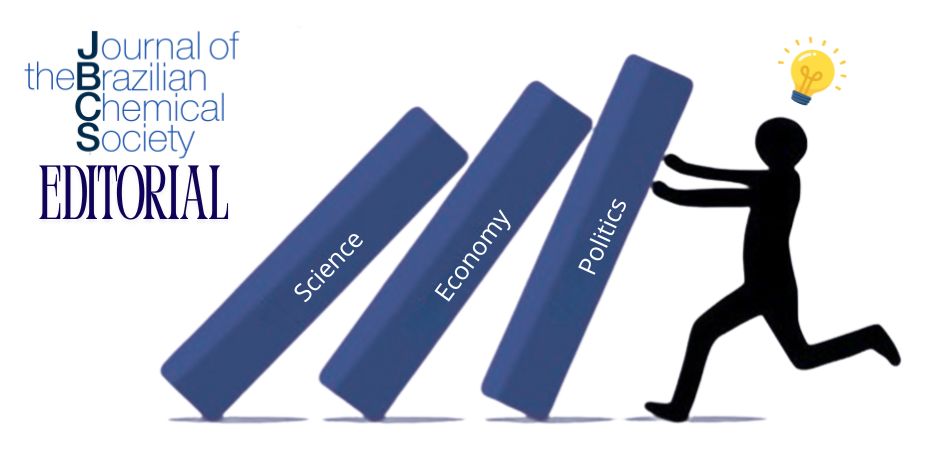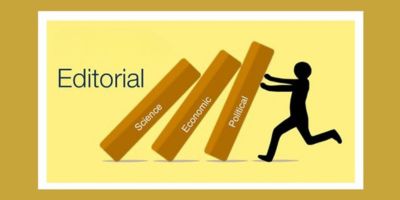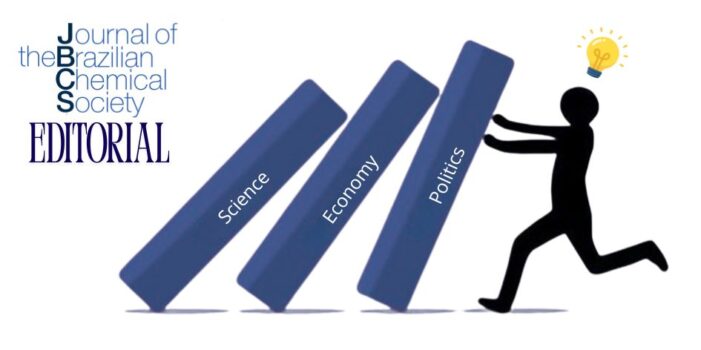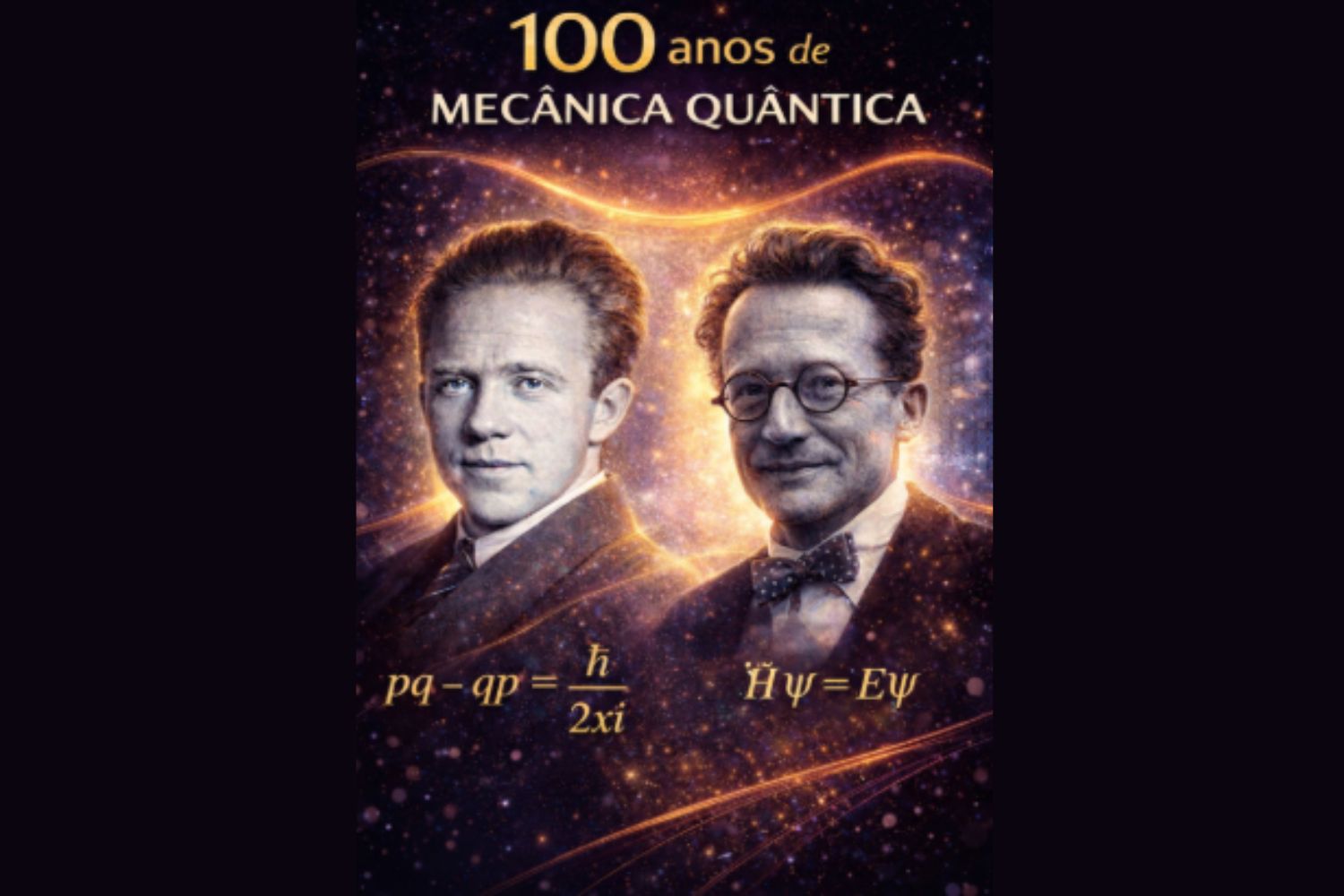
In 1990, the Journal of the Brazilian Chemical Society (JBCS) was launched as part of the editorial portfolio of the Brazilian Chemical Society (SBQ). Even in a context in which the journal Química Nova was already well established, the JBCS quickly positioned itself as the leading chemistry journal in Latin America. This achievement was largely due to the strategic vision of its founders, who adopted English as the official language of the journal, enabling its immediate integration into the international chemical community.
The recent seminal scrutiny published by Concepta McManus et al.1 presented a detailed analysis of JBCS’s past and current standing. Although its average citation indicators remain below the levels observed in higherimpact international journals, the JBCS demonstrates substantial scientific, social, and translational value by consistently and rigorously covering all areas of chemistry, while keeping pace with the field’s dynamic evolution and the continuous emergence of new research areas.
As part of its institutional mission, the JBCS continually strives for editorial excellence, understood as the ability to attract and retain qualified readers and authors. This excellence is reflected in the quality, clarity, and impact of its publications, as evidenced by citations, as well as in the efficiency of editorial workflows, particularly with respect to the timeliness of decisions on submitted manuscripts.
To sustain this process, consistent investment in the professionalization of the editorial structure has become essential. In this context, the JBCS has recently undergone an organizational restructuring, adopting an editorial governance model led by an editor-in-chief (EIC), supported by four executive editors (EEs) representing the major areas of chemistry, as well as a body of associate editors (AEs) with expertise across the field’s diverse interfaces.
In parallel, following the renewal of its editorial board, the journal implemented a set of author-focused measures, including updated submission templates; the definition of minimum experimental characterization requirements; the regulation of the use of artificial intelligence tools; the standardization of bibliographic references compatible with the main reference managers used by the scientific community; and a comprehensive update of the instructions for authors.
With readers in mind, the adoption of monthly editorials and the revision of accepted manuscript types have broadened the journal’s scope. Particularly noteworthy is the creation of the “Perspectives” section, which comprises commissioned articles by internationally recognized scientific leaders who provide critical and forward-looking analyses of specific areas of chemistry. These manuscripts are published exclusively by invitation of the EIC and are intended to strengthen JBCS’s role as a qualified forum for scientific reflection.
Recognizing that the quality of published articles is a decisive factor in the growth and consolidation of any scientific journal, the JBCS has adopted as a central strategy the expansion of its base of high-quality submissions, thereby ensuring rigorous and transparent selection processes. In this context, beyond bibliometric indicators, the efficiency and predictability of editorial procedures play a strategic role in attracting authors.
To this end, the JBCS has undertaken a comprehensive process to enhance the qualifications of its editorial team, including the implementation of regular training programs; the updating of editorial practices; the incorporation of new decision support tools within the ScholarOne platform; the revision of peer-review guidelines; the redefinition of reviewers’ roles; the creation of the co-reviewer role; and increased flexibility in the review model, allowing for either anonymous or identified reviews. As a result, editorial timelines have been significantly reduced, with the average time to first decision for peer-reviewed manuscripts now below 30 days, compared with up to 67 days previously.
Additional structural initiatives have also been implemented, such as the creation of the “Accepted Articles” section, which allows manuscripts to be made available with a registered DOI prior to final proof production, thereby increasing visibility and enabling immediate citation. Additionally, in line with international practices adopted by leading journals, the JBCS has recently implemented a continuous publication model, eliminating the division into volumes and issues and further streamlining its editorial process.
The recent transformations implemented by the editors and staff of the JBCS, with the full support of PubliSBQ and the SBQ, were carefully planned to preserve the regularity and stability of the publication workflow. Taken together, these actions, combined with the commitment of the editorial board, have led to significant advances in the journal’s quality and have strengthened its scientific relevance. All these changes are already being perceived by the chemical community and are positively impacting it. Indeed, many respected members of the community have publicly expressed their approval of both these changes and the course that the JBCS is now taking.
Finally, it is essential to acknowledge the central role of the chemical community, particularly the Brazilian community, in the consolidation of the JBCS. The continued engagement of authors, reviewers, and readers is crucial to maintaining the journal among the leading chemistry periodicals in Latin America. Strengthening the journals published by PubliSBQ is inextricably linked to strengthening Brazilian science as a pillar of national sovereignty.
Fernando de Carvalho da Silva
Departamento de Química Orgânica, Instituto de Química, Universidade Federal Fluminense, 24020-141 Niterói-RJ, Brazil
https://orcid.org/0000-0002-2042-3778
Reference
- McManus, C.; Pimentel, F.; Pimentel, D.; J. Braz. Chem. Soc. 2025, 36, e-20250166. [Crossref]
Assine a newsletter da PubliSBQ!
Esteja sempre atualizado(a) sobre as últimas publicações da SBQ.
A PubliSBQ
A PubliSBQ é um órgão destinado a atividades de difusão científica, técnica, de interesse didático e de divulgação de notícias. Sua principal missão é a produção de publicações de interesse da comunidade química nacional: profissionais de química da universidade e da indústria, estudantes de química do ensino médio, universitário e de pós-graduação, reunindo, também, mecanismos de difusão da química para o público leigo e infantojuvenil.
Entre em contato
Endereço da PubliSBQ
Sociedade Brasileira de Química
CNPJ: 49.353.568/0001-85
Av. Prof. Lineu Prestes, 748
Bloco 3 superior, sala 371
CEP 05508-000 Cidade Universitária
São Paulo, Brasil

A PubliSBQ é um órgão destinado a atividades de difusão científica, técnica, de interesse didático e de divulgação de notícias. Sua principal missão é a produção de publicações de interesse da comunidade química nacional: profissionais de química da universidade e da indústria, estudantes de química do ensino médio, universitário e de pós-graduação, reunindo, também, mecanismos de difusão da química para o público leigo e infanto-juvenil.
Mais informações sobre nós
